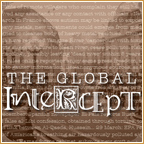SPECIAL NEWS ALERT: Touchscreen Voting Machines Put in Question Integrity of US Election Process
Across the United States, problems are being discovered with what are supposed to be the state of the art in balloting technology: digital touchscreen voting machines. Security questions were raised initially when the machines were widely distributed, by a handful of companies, with no hard-copy record of voters' intent, which led to a nationwide movement calling for "verified voting", or voter-verified paper trails.
State after state has accepted that the absolute standard for a truly reliable voting and vote-counting process must be a process where voters can actually see the official record of their votes, verify that their votes were recorded correctly, and where those hard-copies can then be checked by both machine and by human intervention, if such a recount is needed. Florida and California have both scrapped their touchscreen machines, amid mounting concerns about reliability and security. A team of researchers at Princeton University has demonstrated the ease with which the machines can be hacked and thousands of votes shifted or stolen, leaving little or no trace and with no means by which to return to any record of "voter intent" (a standard which most states require constitutionally). Allegations of suspicious interactions between company executives at Diebold and other voting machine manufacturers or maintenance firms has raised fears that the machines have already been used to sway the outcome of past elections (Ohio in 2004 is one possible case).
A team of researchers at Princeton University has demonstrated the ease with which the machines can be hacked and thousands of votes shifted or stolen, leaving little or no trace and with no means by which to return to any record of "voter intent" (a standard which most states require constitutionally). Allegations of suspicious interactions between company executives at Diebold and other voting machine manufacturers or maintenance firms has raised fears that the machines have already been used to sway the outcome of past elections (Ohio in 2004 is one possible case).
In southern California, San Diego election workers were permitted to take the machines home with them on the eve of elections, leading to what is possible the most severe security breach in US elections since the 2000 debacle in Florida raised real concerns about the legitimacy of the vote-counting process. Instances of votes for one candidate actually being recorded for another are infamous and disturbingly frequent.
Clive Thompson has written for The New York Times:
"In the last three election cycles, touch-screen machines have become one of the most mysterious and divisive elements in modern electoral politics. Introduced after the 2000 hanging-chad debacle, the machines were originally intended to add clarity to election results. But in hundreds of instances, the result has been precisely the opposite: they fail unpredictably, and in extremely strange ways; voters report that their choices 'flip' from one candidate to another before their eyes; machines crash or begin to count backward; votes simply vanish."
So, even where the "paper trail" is implemented, to shore up the technology against its own inherent flaws, there are problems with the quality of the manufacturing or maintenance, it would seem, leading to the possibility that votes are simply erased, lost, or never recorded. Roughly one-third of the electorate will cast their votes in November 2008 on touchscreen machines, unless action is taken to prevent this unproven technology from interfering with voters' ability to express their choice.



















No comments:
Post a Comment